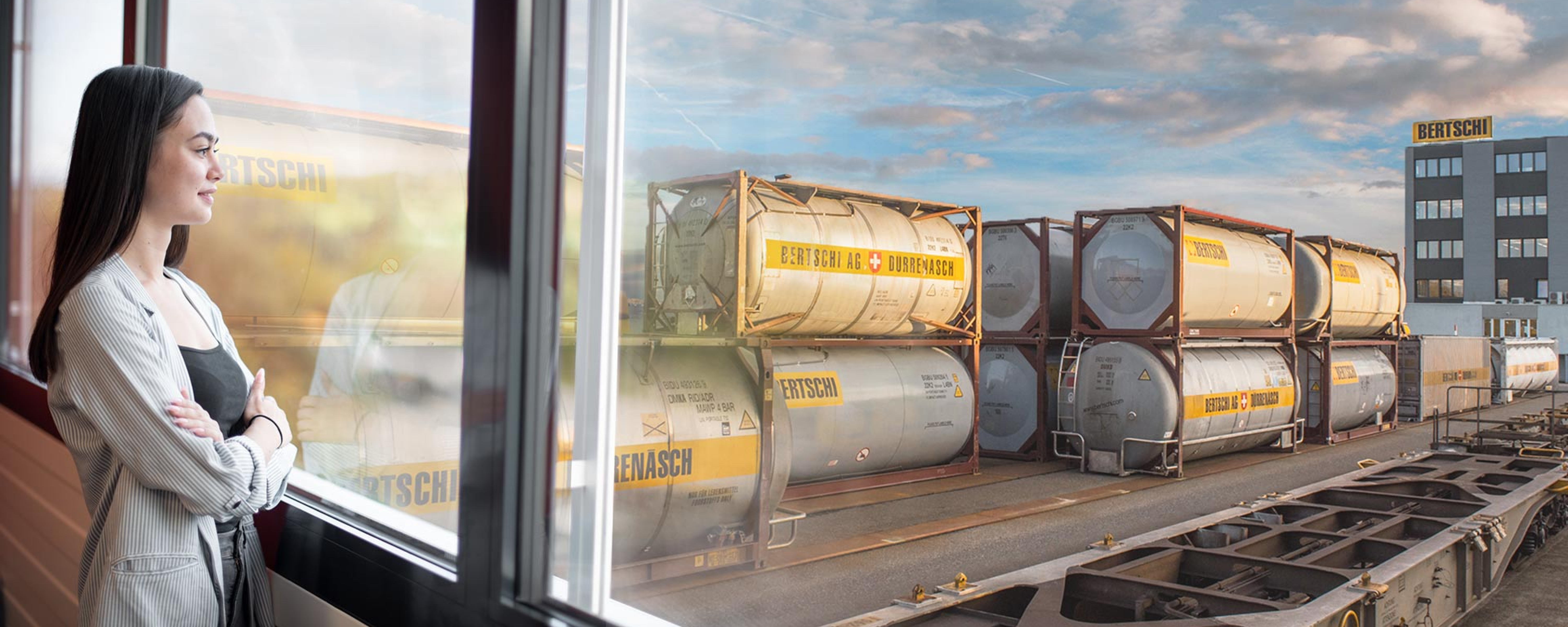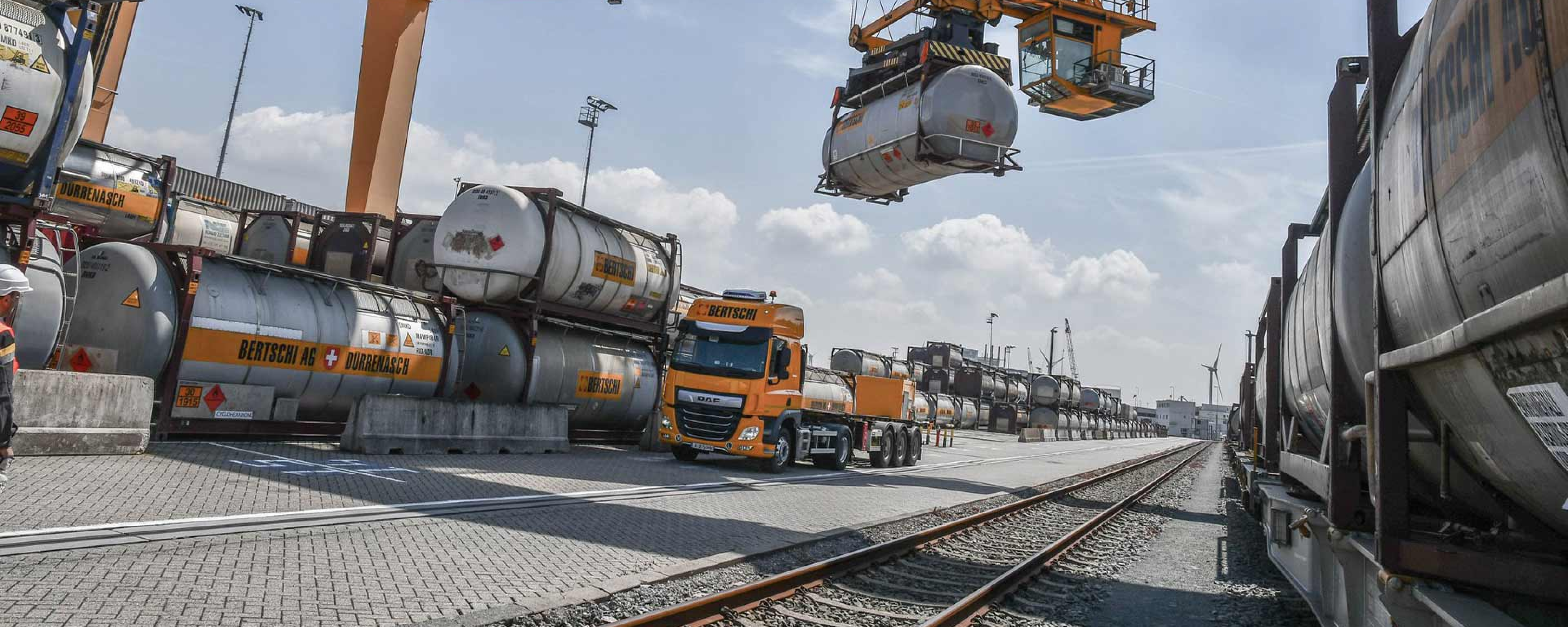“Among our global network, China is strategically the most important one” - Jemmy Wu
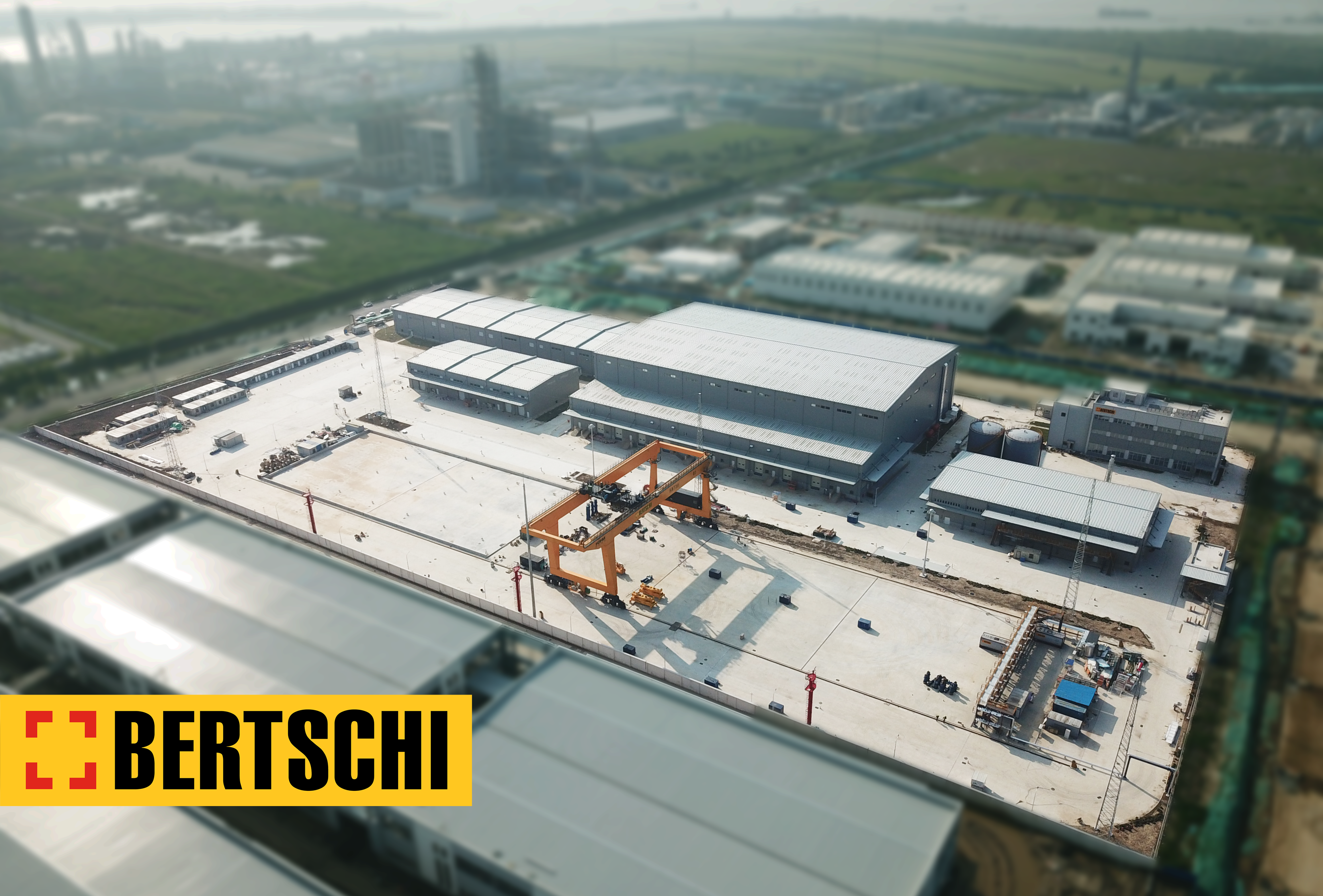
Swiss-based logistics provider Bertschi started in the 1950s as a small family business. Today, the company employs over 3,200 people in 39 countries. Its newest investment is a new chemical logistics hub in Zhangjiagang, close to Shanghai. Jemmy Wu, Managing Director for the Chinese market, told us what Bertschi’s plans are with the new facility.
This article was first published by the Swiss Chinese Chamber of Commerce in Shanghai.
Bertschi just recently completed the construction of its new chemical logistics hub in Zhangjiagang close to Shanghai. Can you tell us a bit more about the reasons why Bertschi chose Zhangjiagang, the size of the hub and what kind of clients Bertschi is going to support with this new facility?
There was a comprehensive evaluation of various factors for us to choose Zhangjiagang. But there are three key considerations:
First of all, in the Yangtze River International Chemical Park, Zhangjiagang there are many international chemical manufacturers like Dow, Wacker, Olin, Infineum, Firmenich etc. who have been very important customers for the Bertschi Group and potential customers for Bertschi Zhangjiagang. It is our objective to offer our customers door to door solutions. A regional Chemical Liquids Hub is a key cornerstone in our global network.
Secondly, Zhangjiagang is an important location for domestic water transportation with a port for Dangerous Goods containers. This is similar like Duisburg in Europe where Bertschi also has an intermodal logistics hub. As a leading chemical logistics company in intermodal transportation, Bertschi considers the dangerous goods container port in Zhangjiagang as another important factor to have green and sustainable logistics in the long-term. This avoids transporting dangerous products by road through the densely populated and quite congested Shanghai area. Furthermore, the hinterland market of the Yangtze River Basin has a market potential of 400 million people, which generate about 40% of the GDP of China.
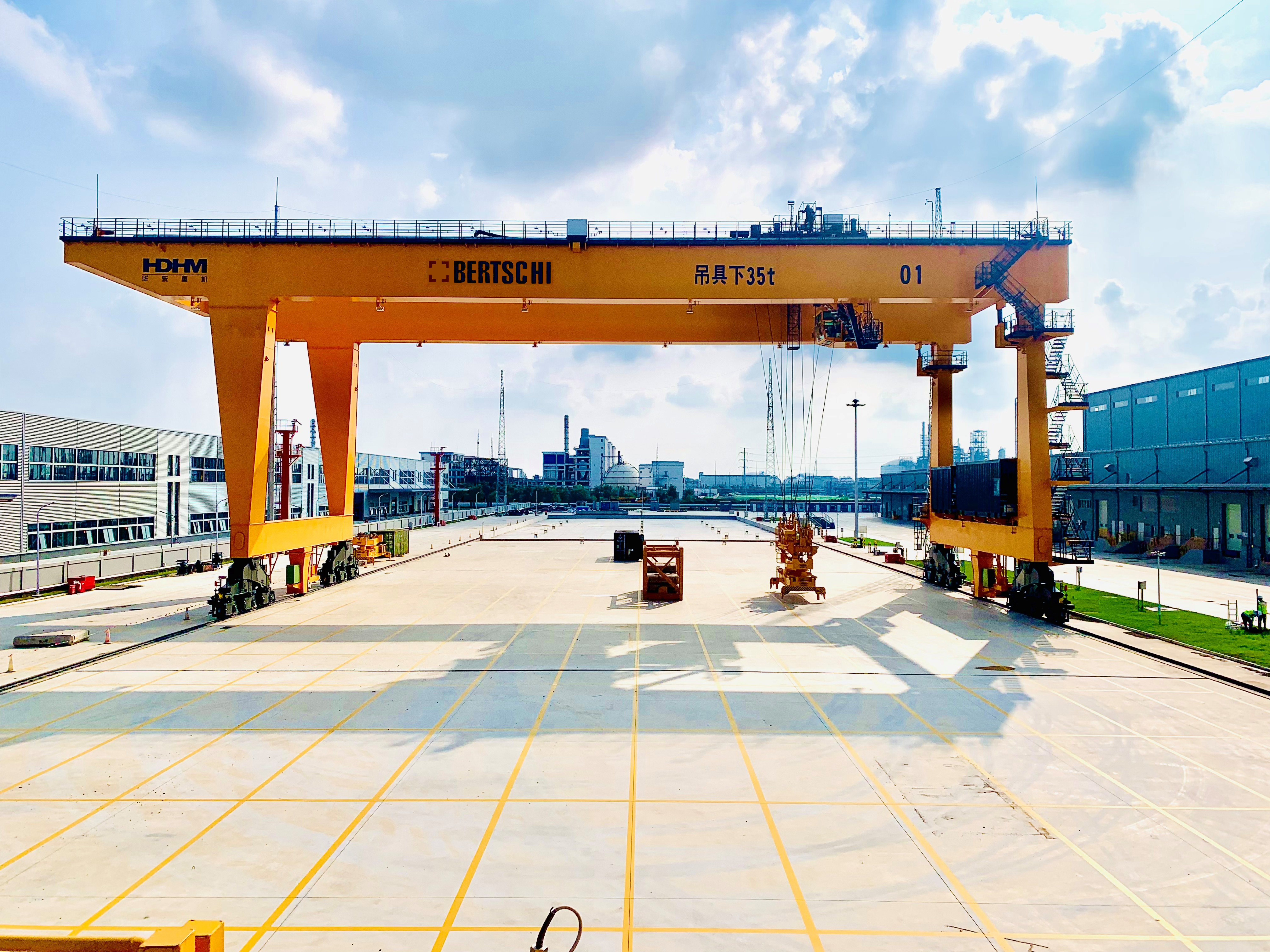
The third reason is that the local authorities in Zhangjiagang have extensive experience with the chemical industry and fully understand the importance for the chemical park to have a professional, high-standard integrated chemical logistics hub. This will improve the safety management standard locally and thus attract more potential international chemical manufacturers. The support of the local authorities is definitely an important factor for any dangerous chemical investment to consider in China.
Our Zhangjiagang hub occupies an area of 62,400 m2 and includes class A/B/C warehouse storage, loaded bulk DG container storage including heating and a drumming facility enabling integrated logistics services to our customers who are international and domestic chemical manufacturers that have high safety requirements and service demands.
“Zhangjiagang is the biggest single investment in our history and is the first infrastructure investment for Bertschi in China”
How have COVID-related restrictions impacted the construction of the hub?
Did it lead to delays or was it possible to run the construction more or less according to plan?COVID-related restrictions did impact the construction process. But thanks to the creativity and dedication of our Zhangjiagang local team, excellent support of the authorities and our project partners, it only caused us a few weeks delay and we were able to start trial operations almost according to our original plan.
According to news sources, Bertschi spent around USD 45 million for the new hub in Zhangjiagang, which, at the same time, was the largest investment of the company in its history. What are your plans for the coming years in China given this major investment?
Yes, it is the biggest single investment in our history and is the first infrastructure investment for Bertschi in China.
Since Bertschi started its global expansion in 2012, the global market has played an important role in the Bertschi Group by contributing to more than one third of turnover today. We target to increase this contribution to 50 percent in 2026. Among our global network, China is strategically the most important one.
Our strategy in the Chinese market is long-term oriented. For the Zhangjiagang investment our objective is to strive for operation excellence by offering our customers our high global safety standard, undisputed quality and global resilient supply chain solutions. The Bertschi Zhangjiagang hub needs to become the benchmark in the Chinese chemical logistics industry and as such create a solid foundation for Bertschi’ s further development in China.

How do you organize the transportation of your clients’ liquid chemicals in China? Is there an established intermodal transportation system for such goods? How does this work and who are your logistics partners? Will we see Bertschi trains with your eye-catching logo on it?
Compared to Europe, intermodal transport, especially rail transport for dangerous chemicals, is very limited in China. Most of the chemical transportation in China is still done by road and waterways.
As a pioneer in transalpine intermodal transport, Bertschi leads the way when it comes to sustainability in freight transportation. In 2011, Bertschi was the first company to transport ISOtanks on a pure rail route between Europe and China. Bertschi also has been actively involved in ‘The Belt and Road’ project by delivering liquid chemicals from China to Germany by rail continuously since 2015. In 2017, a train loaded with 82 Bertschi ISO-tanks began its long journey from Korla in Western China to Europe covering a distance of 8,000 kilometers and passing 7 countries within 18 days.
In China, we cooperate with our partner Hupac to provide customers with intermodal chemical logistics solutions.
Also in China, intermodal transport will become more and more important because it is safer and more sustainable. With its expertise, Bertschi is willing to support that journey where feasible.
"Bertschi also has been actively involved in ‘The Belt and Road’ project by delivering liquid chemicals from China to Germany by rail continuously since 2015"
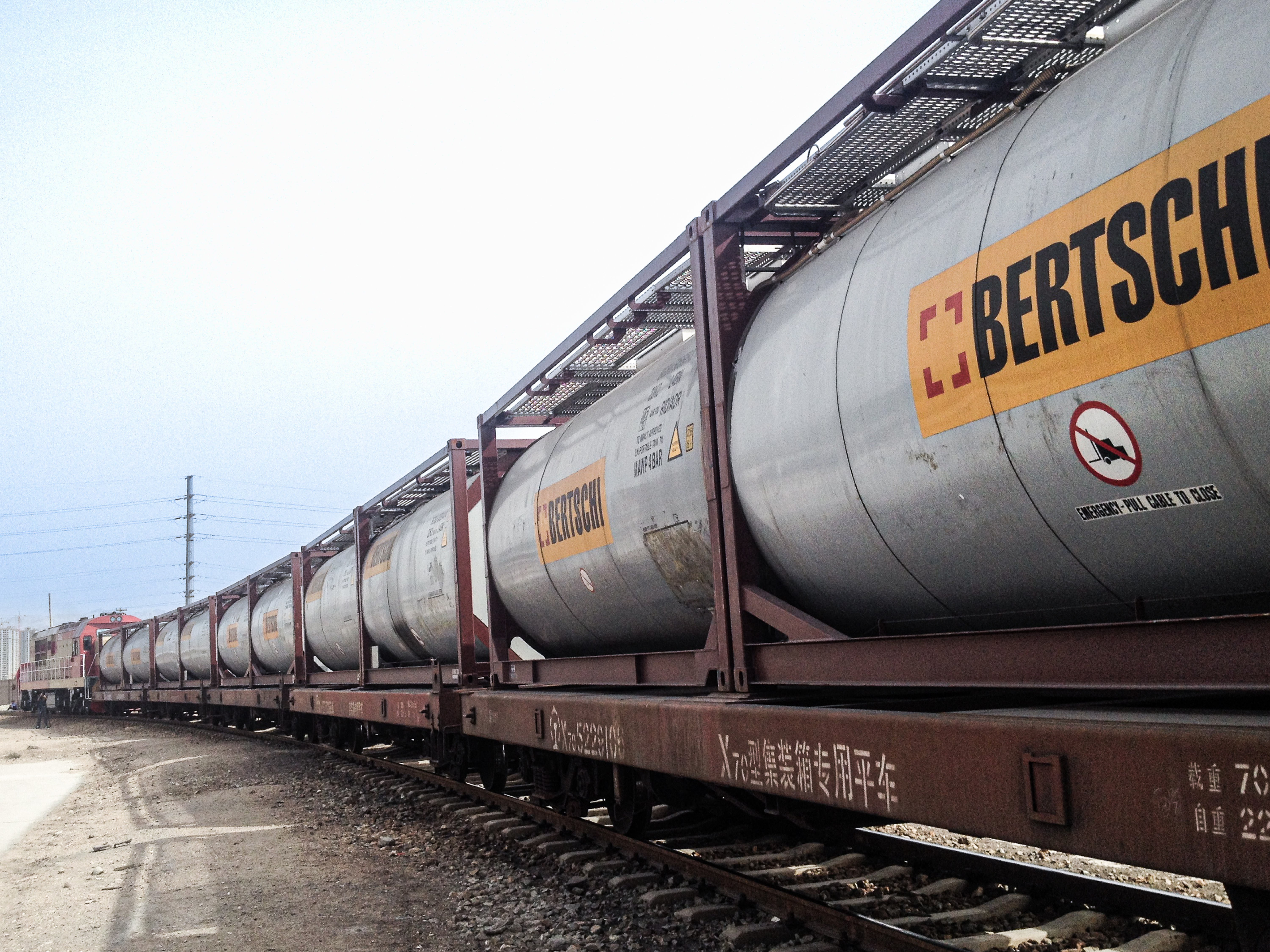
China is a huge market but also a very competitive one. How can Bertschi compete and who are your typical customers?
Our customers are international and domestic chemical manufacturers that have high safety requirements and service demands.
Bertschi is an international chemical logistics service provider with presence in 39 countries operating 79 subsidiaries. We have 30 terminals like the one in Zhangjiagang covering the whole of Europe, the Middle East and Asia. With such an extensive own logistics network, we are able to provide customers with an ‘one stop shop’ solution globally. Customers only need one contact from Bertschi to manage the complete global supply chain instead of managing multiple suppliers and their interfaces. We support our customers all the way in achieving a more effective and efficient supply chain.
Our Zhangjiagang hub is able to provide integrated logistics services. For example, customers used to import from Europe to China in IBCs or drums and then distribute them domestically in China. Using the Bertschi network, the customer can transport the product with high payload and low costs Isotanks from Europe to China. After arrival in our Bertschi Zhangjiagang hub, we can store the Isotank and then deliver it to the end customer or repack it in smaller quantities (e.g. drums, IBCs) upon end customer demand.
Storing close to the end customers offers security of supply and on-time delivery, repacking as late as possible in the supply chain avoids unnecessary costs. Thus, for the customer, on one hand, the cost for whole supply chain is reduced; on the other hand, flexibility is much increased to meet the spot market demand.
Of course, high safety standards and customer service have always been the key for Bertschi’s success and our Zhangjiagang hub will inherit this culture from the Bertsch Group and learn from our sister companies.
How important is digitalization for Bertschi and your industry in general? How is Bertschi taking advantage of digital tools for its operations and for communication with the clients in China?
At Bertschi we are always encouraged to be innovative and bring intelligent solutions and methodologies that create additional value for our customers and improve our efficiency and effectiveness. With the ongoing transformation of the chemical industry, the need for process digitization keeps growing. One of the most common customer expectations nowadays is an around-the-clock overview of the order status, expected time of arrival (ETA), delivery accuracy and accurate stock levels.
Bertschi invests several millions CHF in digitization. Bertschi has built its own IT platforms and is continuously improving them. Our Zhangjiagang hub is managed through Bertschi’s own ERP system called Cargoweb, which is fully customized according to the Chinese standards and regulations. It includes different modules such as OMS, WMS, TMS, YMS, heating and drumming etc. With this system, we will be able to have direct data communication with our customers’ software systems to increase their and our efficiency and effectiveness.

Interview by Peter Bachmann, Executive Director of SwissCham Shanghai. For questions and suggestions, contact Peter by email: p.bachmann@sha.swisscham.org.

Jemmy Wu graduated from UIBE with a Bachelor in Economics and obtained a Master Degree from ESB, Reutlingen and Lancaster University. Jemmy participated in EU-China Managers Exchange and Training Programs and learned various subjects at renowned business schools in Europe.
Since the first job with Siemens, Jemmy Wu has followed a career path in German speaking companies with both MNCs and SMEs in China and in Germany. In 2016, Jemmy Wu joined Bertschi as MD China, BU Solutions. Bertschi is a professional chemical logistics company with headquarter in Dürrenäsch, Switzerland. Recently Bertschi has the 1st investment in China by establishing a one-stop solution chemical logistics terminal in Zhangjiagang which started operation in August 2022.
Jemmy Wu is married with one 11-year-old son. In her spare time, she likes travelling and reading.
